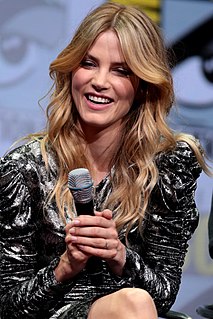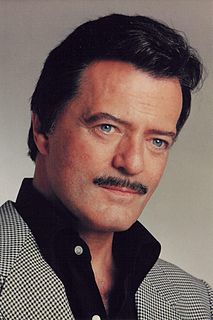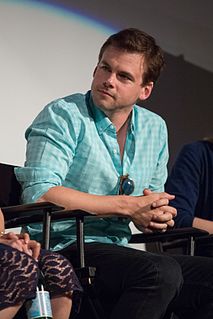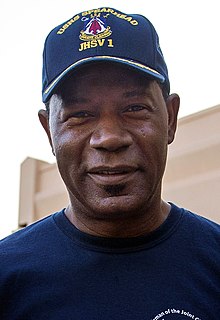A Quote by Sylvia Hoeks
I do enter into character on set, but I can step out of it.
Related Quotes
This is a corny actor thing to say, but the first step is that you can't judge the character that you're playing. If it's built in three-dimensional fashion, you'll just play a character who's going out and seeking the best version of their life that they can find. That gives the character an accessibility that everyone can identify with.
Every actor has their own process. For me, I really need to stay in the pocket. So, if I'm on set and I'm in character, I'm not thinking like a producer. If I'm on set and I'm not in character, wardrobe and make-up, and I'm just coming on set for the moments that I'm not shooting, then I'm able to be the producer.
There was a point where I was making four movies a year. I was always on a set. I had no stories to tell. I was feeling empty. My life was just luggage and hotels and from set to set, from character to character. And one day, I said, 'And where is mine?' You know? And the moment I started to feel that fear, I stopped and I slowed down.
If everyone's happy, then I'm the character where when I enter that means there's trouble. In a movie, when I enter, it's not a good thing. But I know where I'm at. But, you know, you don't have to call me by my character's name for months on end. Football taught me that, because you can go from being best friends to having to play that person on another team, you have to be able to turn that on and off. You need to find that middle ground.

































